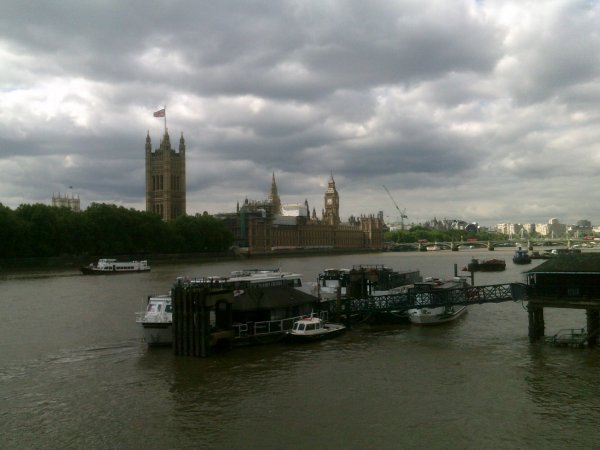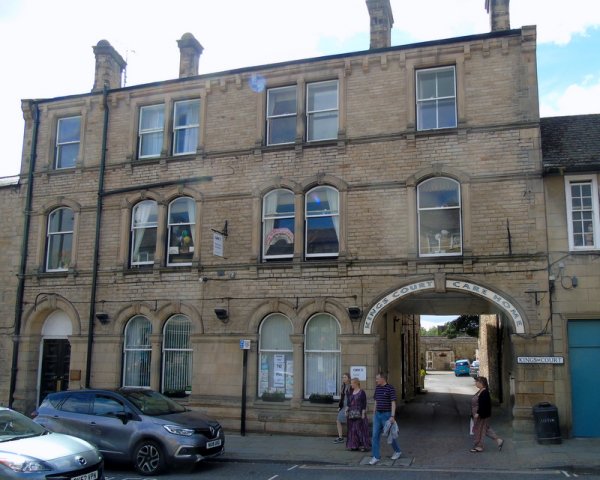May 11th 2021, 14:19
Blog 11th May 2021
In this blog I consider the Queen’s speech that was made today and its implications for the constitution and public services. I think that the proposed bills will reduce the rights of citizens, the courts and Parliament and will do little to improve public services. The lack of a bill for Social Care is a miserable failure on the part of the government.
The Queen reopened Parliament today with a ten-minute speech that outlined only thirty bills some of which are carried forward from the previous session or have been mentioned in previous Queen’s speeches.

The Houses of Parliament where the Queen's Speech was delivered
This is not a very big legislative programme, but it does reveal the direction that the government intends to take now that Britain has left the European Union and no longer must meet the requirements of the European Charter of Fundamental rights or the requirements of the European Single Market.
There are three constitutional bills:
Willie Sullivan, Senior Director at the Electoral Reform Society said that:
“The government… will legislate to make it harder for millions of ordinary people to vote. Demanding ID at the doors of every polling station is a solution in search of a problem. Voting is safe and secure in the United Kingdom, meaning this policy is just an unnecessary barrier to democratic participation. Ministers need to listen to these concerns and drop these costly plans.
“At a cost of up to £20million per election, mandatory ID is an expensive distraction and the wrong priority right now. These proposals should be dropped before they damage political equality in the United Kingdom. 3.5 million people lack photo ID in this country. These proposals will make it harder to vote for huge numbers of voters, locking ordinary people out of our democracy and unfairly discriminating against those who lack ID.
“Rather than inventing problems, the government should focus on the real issues in politics – including the nine million people missing from the electoral roll, and the glaring loopholes in our lobbying laws.
“Groups representing millions of people – from homelessness charities, pensioners’ groups, LGBT+ campaigners and civil liberties activists – are sounding the alarm about these plans.”
The Police, Crime, Sentencing and Court Bill will provide new powers for the police over protests, and new sentences for serious crimes. The provisions in this bill have already been criticised for placing constraints on the ability of citizens to make peaceful protests about the actions of the government.
As Britain has now left the European Union’s single market, the government is able to take a new approach to state aid and procurement that will presumably affect how local authorities and housing associations do their business. The Procurement Bill will replace the European Union procurement regulations, presumably with a regime that requires less competition, and the Subsidy Control Bill will allow government to provide more state aid to failing businesses.
There are two housing bills:
There are two education bills:
The absence of a Social Care Bill is conspicuous and represents a miserable failure by the government to address this important and urgent matter. Instead, the speech merely said that the government would bring forward measures to reform the operation of the social care system in England in due course. The BBC reports that discussions are ongoing within government about the potential cost of changes, which could run into the billions.

Kings Court Care Home in Barnard Castle, Durham
Before the Queen’s speech, the Local Government Association sent a cross-party letter to Rishi Sunak, the Chancellor of the Exchequer. In the letter, council leaders from all political parties called on the government to put the reform and funding of the adult care system at the centre of its thinking on how we emerge from the pandemic. They want investment that would move the system from being based around care homes and hospitals, to one that would focus on prevention and community support.
The letter says reform needs to pool the risk of having high care costs after developing a condition such as dementia, with funding provided through taxation or a social-care premium.
It argues that this is an investment in people, rather than ‘a cost that is too difficult or too high’.
It urges the government to:
Councillor James Jamieson (Conservative, Central Bedfordshire Council), Chair of the Local Government Association said that:
"All of us in local government, across the political divide, want to see the Queen's Speech finally set out the plans we have been waiting for… This is about an investment in people, in all of us… A failure to act will be a bitter blow to everyone connected to social care."
Today this ‘bitter blow’ has landed on all those connected to social care.
Meanwhile we are continuing with our programme of webinars on subjects of interest to those who care about public services including local government and housing. For further information, please click here.